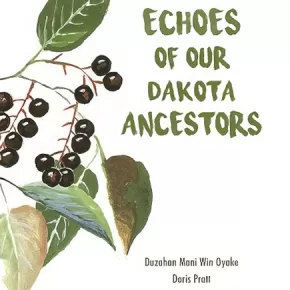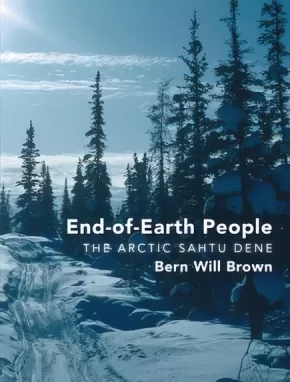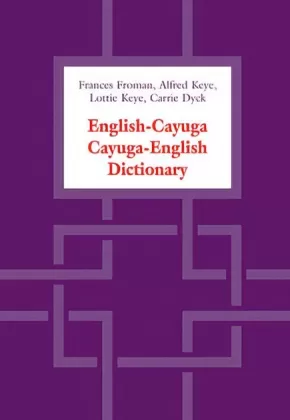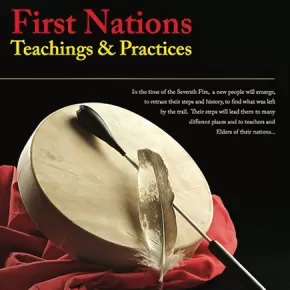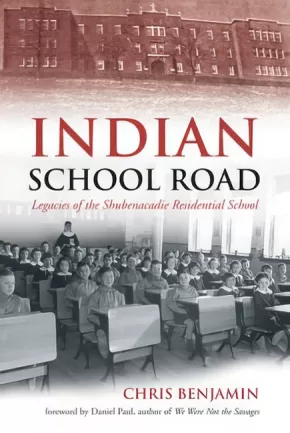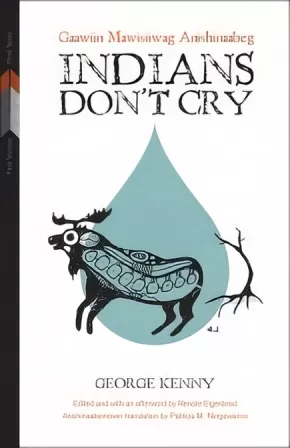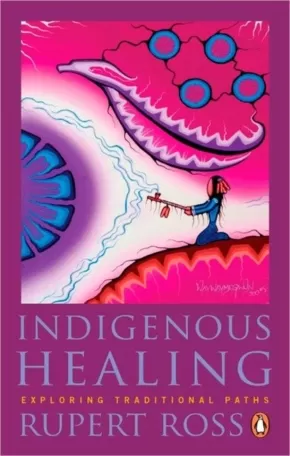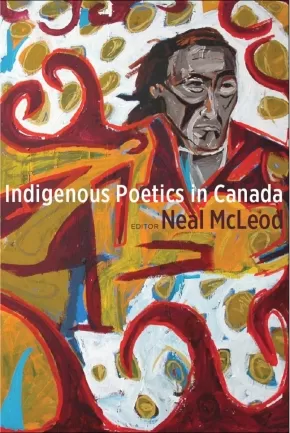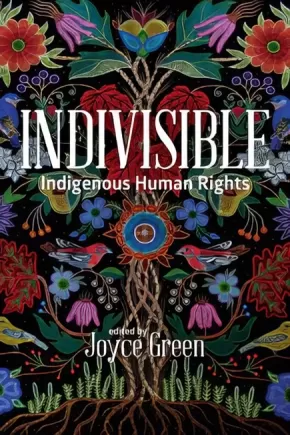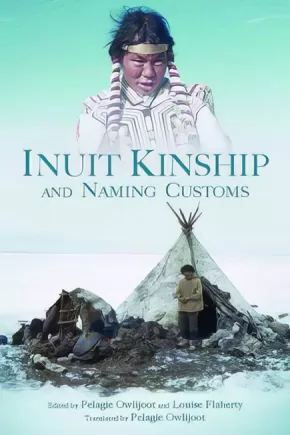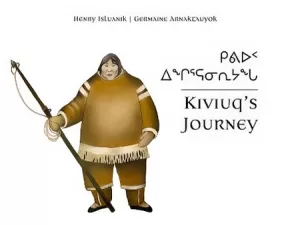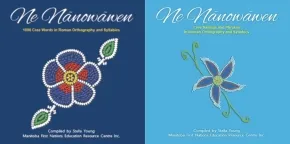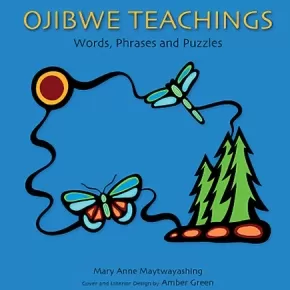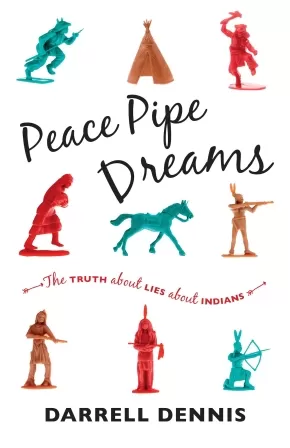
Indigenous Studies
886
-
900
of
1030 Results;
Sort By
Go To
of 69
Echoes of Our Dakota Ancestors
$9.95
Format:
Paperback
Text Content Territories:
Indigenous Canadian; First Nations; Sioux; Dakota;
Grade Levels: University/College;
ISBN / Barcode: 9781927849156
Synopsis:
Synopsis:
Enjoy imakhmakhap woyakapi (enjoyments that are told) in Dakota. Each chapter in this charmingly illustrated booklet focuses on a month of the year, with stories, poems and songs in the Dakota language. Doris Pratt, a long time language teacher and material developer, shares this Dakota collection to help students learn and practice the language.
Educator Information
This book is written in the Dakota language. It is useful as a total Dakota language program or can be used to supplement any Dakota language course. It is suitable for adult language courses. Included in the appendices are explanations of the Dakota language and a prayer by Hector Bunn.
End-of-Earth People: The Arctic Sahtu Dene
$35.00
Format:
Paperback
Text Content Territories:
Indigenous Canadian; First Nations; Dene; North Slavey (Sahtu);
ISBN / Barcode: 9781459722675
Synopsis:
Synopsis:
Bern Will Brown, noted northern author, artist, photographer, and respected community leader living in Colville Lake, Northwest Territories, provides new insights and perspectives on the Sahtu Dene, the people referred to as the "Hareskin" in Alexander Mackenzie's 1793 journal. Having lived among them for over sixty years and as a speaker of their dialect, Brown is well positioned to provide an adventure in history and culture rooted in the Hareskin traditional way of life.
End-of-Earth People, his latest contribution and a valuable record of the North, is a portrait of a people Brown has come to know in ways that anthropologists and ethnologists can only envy.
English-Cayuga/Cayuga-English Dictionary
$81.00
Format:
Paperback
Text Content Territories:
Indigenous Canadian; First Nations; Haudenosaunee (Iroquois); Cayuga;
Reading Level: N/A
ISBN / Barcode: 9781442627093
Synopsis:
Synopsis:
The first comprehensive lexicographic work on Cayuga, an Iroquoian language spoken in southern Ontario at Six Nations of the Grand River, this dictionary, combines the work of Dyck, a professor of linguistics, and Froman, Keye, and Keye, all Cayuga language teachers at Six Nations. It contains over 3000 entries, including 1000 verb forms and many nouns never before printed; extensive cross-referencing, thematic appendices that highlight cultural references and provide 1600 further entries, and a short grammatical sketch complete this accomplished work.
Entries in the main dictionary are organized by bases, which will make the dictionary especially helpful to those learning Cayuga as a second language. The dictionary's accuracy and extensiveness will make it an indispensable reference not only to the Cayuga speaker and student, but also to other Iroquoian speakers, linguists, anthropologists, and historians of Indigenous Peoples.
Produced under the auspices of the Sweetgrass First Nations Language Council Inc.
Reviews
"The first extensive dictionary of Cayuga, this benchmark work documents the language in 3,000 entries and in word lists organized thematically in appendixes ... A valuable tool for linguists of Iroquoian languages and anthropologists, as well as those who study the Cayuga language. Summing up: Highly recommended."— R. Hanson, Choice
"A major milestone in Iroquoian studies and an extremely important tool in the preservation of the Cayuga language."— Blair A. Rudes, Department of English, University of North Carolina at Charlotte
Additional Information
786 pages | 6.88" x 9.73" | Paperback
First Nations of British Columbia: An Anthropological Overview, Third Edition
$29.95
Format:
Paperback
Text Content Territories:
Indigenous Canadian; First Nations;
ISBN / Barcode: 9780774828734
Synopsis:
Synopsis:
The First Nations of British Columbia, now in its third edition, is a concise and accessible overview of BC's First Nations peoples, cultures, and issues. Robert J. Muckle familiarizes readers with the history, diversity, and complexity of First Nations to provide a context for contemporary concerns and initiatives. This latest edition of the classic work has been fully revised, with new chapters added and previous ones rewritten, arguments reframed in light of current developments, and resources brought right up to date. The First Nations of British Columbia is an indispensable resource for teachers and students and an excellent introduction for anyone interested in BC First Nations.
First Nations Teaching & Practices (6 in Stock)
$8.00
Format:
Paperback
Text Content Territories:
Indigenous Canadian; First Nations;
Grade Levels: University/College;
Synopsis:
This booklet is intended to provide readers with a basic understanding of the traditional teachings and practices of Manitoba’s First Nations people. While this knowledge has always existed, it has become increasingly important to seek it, learn it and share it, in particular with children and youth. As our knowledge increases, so does the practice, honour and respect we have for one another and for these ancestral ways.
The tools and knowledge in this booklet provide the basic information needed to begin a journey in order to rediscover the original ways that have withstood the test of time. We have searched for this knowledge by going to our Elders who carry the gifts of culture, language, history, medicines and ceremonies.
Indian School Road: Legacies of the Shubenacadie Residential School
$25.95
Format:
Paperback
Text Content Territories:
Indigenous Canadian; First Nations; Mi'kmaq;
ISBN / Barcode: 9781771082136
Synopsis:
Synopsis:
In Indian School Road, journalist Chris Benjamin tackles the controversial and tragic history of the Shubenacadie Indian Residential School, its predecessors, and its lasting effects, giving voice to multiple perspectives for the first time. Benjamin integrates research, interviews, and testimonies to guide readers through the varied experiences of students, principals, and teachers over the school’s nearly forty years of operation (1930–1967) and beyond. Exposing the raw wounds of Truth and Reconciliation as well as the struggle for an inclusive Mi’kmaw education system, Indian School Road is a comprehensive and compassionate narrative history of the school that uneducated hundreds of Aboriginal children.
Indians Don't Cry: Gaawiin Mawisiiwag Anishinaabeg
$24.95
Text Content Territories:
Indigenous Canadian; First Nations; Anishinaabeg;
ISBN / Barcode: 9780887557699
Synopsis:
Synopsis:
George Kenny is an Anishinaabe poet and playwright who learned traditional ways from his parents before being sent to residential school in 1958. When Kenny published his first book, 1977’s Indians Don’t Cry, he joined the ranks of Indigenous writers such as Maria Campbell, Basil Johnston, and Rita Joe whose work melded art and political action. Hailed as a landmark in the history of Indigenous literature in Canada, this new edition is expected to inspire a new generation of Anishinaabe writers with poems and stories that depict the challenges of Indigenous people confronting and finding ways to live within urban settler society.
Educator & Series Information
Indians Don’t Cry: Gaawin Mawisiiwag Anishinaabeg is the second book in the First Voices, First Texts series, which publishes lost or underappreciated texts by Indigenous artists. This new bilingual edition includes a translation of Kenny’s poems and stories into Anishinaabemowin by Patricia M. Ningewance and an afterword by literary scholar Renate Eigenbrod.
Although most of the books in this series are non-fiction, this one is listed as fiction.
Additional Information
190 pages | 5.50" x 8.50"
Indigenous Healing: Exploring Traditional Paths
$24.00
Format:
Paperback
Text Content Territories:
Indigenous Canadian;
Reading Level: N/A
ISBN / Barcode: 9780143191100
Synopsis:
Synopsis:
Imagine a world in which people see themselves as embedded in the natural order, with ethical responsibilities not only toward each other, but also toward rocks, trees, water and all nature. Imagine seeing yourself not as a master of Creation, but as the most humble, dependent and vulnerable part.
Rupert Ross explores this indigenous world view and the determination of indigenous thinkers to restore it to full prominence today. He comes to understand that an appreciation of this perspective is vital to understanding the destructive forces of colonization. As a former Crown Attorney in northern Ontario, Ross witnessed many of these forces. He examines them here with a special focus on residential schools and their power to destabilize entire communities long after the last school has closed. With help from many indigenous authors, he explores their emerging conviction that healing is now better described as “decolonization therapy.” And the key to healing, they assert, is a return to the traditional indigenous world view.
The author of two previous bestsellers on indigenous themes, Dancing with a Ghost and Returning to the Teachings, Ross shares his continuing personal journey into traditional understanding with all of the confusion, delight and exhilaration of learning to see the world in a different way.
Ross sees the beginning of a vibrant future for indigenous people across Canada as they begin to restore their own definition of a “healthy person” and bring that indigenous wellness into being once again. Indigenous Healing is a hopeful book, not only for indigenous people, but for all others open to accepting some of their ancient lessons about who we might choose to be.
Additional Information
344 pages | 5.25" x 8.20" | Paperback
Indigenous Poetics in Canada
$38.99
Editors:
Format:
Paperback
Text Content Territories:
Indigenous Canadian;
Grade Levels: University/College;
ISBN / Barcode: 9781554589821
Synopsis:
Synopsis:
Indigenous Poetics in Canada broadens the way in which Indigenous poetry is examined, studied, and discussed in Canada. Breaking from the parameters of traditional English literature studies, this volume embraces a wider sense of poetics, including Indigenous oralities, languages, and understandings of place.
Featuring work by academics and poets, the book examines four elements of Indigenous poetics. First, it explores the poetics of memory: collective memory, the persistence of Indigenous poetic consciousness, and the relationships that enable the Indigenous storytelling process. The book then explores the poetics of performance: Indigenous poetics exist both in written form and in relation to an audience. Third, in an examination of the poetics of place and space, the book considers contemporary Indigenous poetry and classical Indigenous narratives. Finally, in a section on the poetics of medicine, contributors articulate the healing and restorative power of Indigenous poetry and narratives.
Awards
- 2014 ACQL Gabrielle Roy Prize for Literary Criticism winner.
Reviews
"Indigenous Poetics in Canada is that rare book of scholarship that speaks to the heart and spirit as well as the mind. The selections in this collection offer powerful individual and collective insight into the ways that diverse traditions of Indigenous poetics animate our imaginative possibilities and extend our cultural understandings across time, space, and difference. To study Indigenous poetics is to be forcefully reminded of both our historical traditions and their continuing significance, and the poets, writers, scholars, and story-makers featured in this volume are among the most eloquent and insightful voices on the topic today. This is a transformative intervention in Indigenous literary studies as well as the broader canon of Canadian literature, reminding us that questions of aesthetics are always in dynamic relationship with the lived experience of our politicized imaginations in the world."— Daniel Heath Justice (Cherokee Nation), April 2014
"Conversations about Indigenous literatures will be forever enriched by this stunning new collection. Here, the leading voices in Indigenous literary studies draw upon deep currents of inspiration—both ancient and contemporary—as they reflect upon and powerfully perform the act of re-making the world through language. Joyful, humbling, and wonderfully diverse, Indigenous Poetics in Canada welcomes readers and writers into a re-indigenized rhetorical landscape-and I cannot wait to see what takes place there.'"— Keavy Martin, April 2014
"In a fine introduction, McLeod does an admirable job of framing the essays and interviews to come while giving readers less familiar with indigenous poetics insight into some of the tropes and rhetorical strategies practitioners use, including kiskino (‘things...pointed to, but never completely articulated’), kakêskihkêmowina
(‘counselling narratives’), and aniskwâcimopicikêwin (‘the process of connecting stories together’). That this collection exists is at once a challenge to the white publishing world that has long refused to recognize indigenous poetic practices as ‘poetry’ and a testament to the health and vibrancy of the living word of indigenous consciousness.... Summing up: Highly recommended."— B. Carson, Choice, December 2014, December 2014
Educator Information
This book would be useful for the following subject areas or courses: Indigenous Studies, Poetry, Canadian Literature, and Literary Criticism.
Additional Information
416 pages | 6.00" x 9.00"
Edited by Neal McLeod.
Indivisible: Indigenous Human Rights
$32.00
Editors:
Format:
Paperback
Text Content Territories:
Indigenous;
Grade Levels: University/College;
ISBN / Barcode: 9781552666838
Synopsis:
Synopsis:
Indigenous rights are generally conceptualized and advocated separately from the human rights framework. The contributors to Indivisible: Indigenous Human Rights, however, deftly and powerfully argue that Indigenous rights are in fact human rights and that the fundamental human rights of Indigenous people cannot be protected without the inclusion of their Indigenous rights, which are suppressed and oppressed by the forces of racism and colonialism. Drawing on a wealth of experience and blending critical theoretical frameworks and a close knowledge of domestic and international law on human rights, the authors in this collection show that settler states such as Canada persist in violating and failing to acknowledge Indigenous human rights. Furthermore, settler states are obligated to respect and animate these rights, despite the evident tensions in political and economic interests between elite capitalists, settler citizens and Indigenous peoples.
Reviews
“The historic and contemporary challenges faced by Indigenous peoples, be it the tragedy of residential schools, high levels of violence against women, abusive policing, struggles around land and resources, or entrenched poverty are reflective of the disgraceful failure of Canada and other states to uphold human rights. Indivisible is a critical call to governments and Indigenous peoples to take up the indivisible framework of rights protection enshrined in the UN Declaration of the Rights of Indigenous Peoples.” — Alex Neve, Amnesty International
“Well written, fast moving, and well researched, this is book is a rich, smart resource for anyone wanting to break down and understand the human rights versus indigenous rights debate, and to move on to more productive conversations about real political and legal change for indigenous peoples.” — Val Napoleon, University of Victoria
“Have you ever looked back at a point in your life when, had good advice been taken, it would have meant a much better future? This book offers that advice, now. Canadians who want to live well because Indigenous peoples prosper need to read Indivisible.” — Robert Lovelace, Retired Chief of Ardoch Algonquin First Nation, professor of global studies, Queen’s University
Educator Information
Table of Contents
Indigenous Human Rights are Indivisible (Joyce Green)
THEORETICAL AND POLITICAL CONTEXT FOR INDIGENOUS HUMAN RIGHTS
Denying Indigenous Human Rights: Colonialism and Rights Discourse in Canada (Joyce Green)
Two The Race Bind: Denying Aboriginal Rights in Australia (Maggie Walter)
Colonialism Past and Present: Indigenous Human Rights and Canadian Policing (Elizabeth Comack)
Indigenous Human Rights and Decolonization (Andrea Smith)
ABORIGINAL HUMAN RIGHTS — SPECIFIC THEMES
McIvor v. Canada: Legislated Patriarchy Meets Aboriginal Women’s Equality Rights (Gwen Brodsky)
Confronting Violence: Indigenous Women. Self-Determination and International Human Rights (Rauna Kuokkanen)
Victoria’s Secret: How to Make a Population of Prey (Mary Eberts)
INTERNATIONAL AND DOMESTIC CONSTITUTIONAL LAW and INDIGENOUS HUMAN RIGHTS
Free, Prior and Informed Consent: Defending Indigenous Rights in the Global Rush for Resources (Craig Benjamin)
The Presumption of Conformity: International Indigenous Human Rights and the Canadian Constitution (Brenda Gunn)
Undermining Indigenous Peoples’ Security and Human Rights (Paul Joffe)
Additional Information
240 pages | 6.00" x 9.00"
Inuit Kinship and Naming Customs (1 in stock, in reprint)
$19.95
Format:
Paperback
Text Content Territories:
Indigenous Canadian; Inuit;
ISBN / Barcode: 9781927095713
Synopsis:
Synopsis:
Traditionally, Inuit do not call each other by their given names. Instead, they refer to each other using a system of kinship and family terms, known as tuqurausiit (turk-thlo-raw-seet). Calling each other by kinship terms is a way to show respect and foster closeness within families. Children were named after their elders and ancestors, ensuring a long and healthy life.
As more and more Inuit refer to each other by their English first names, rather than their traditional kinship terms, the tradition of tuqurausiit is slowly disappearing. This book presents interviews with four Inuit elders from Baffin Region, Nunavut, about how names were chosen, the importance of using kinship terms, and how the practice of tuqurausiit has changed over the years. Inuit Kinship and Naming Customs helps to preserve the knowledge of this tradition for younger generations, both Inuit and non-Inuit.
Additional Information
|
Kiviuq's Journey
$19.95
Artists:
Format:
Paperback
Text Content Territories:
Indigenous Canadian; Inuit;
ISBN / Barcode: 9781927095805
Synopsis:
Synopsis:
Kiviuq's Journey retells the legend of Kiviuq, one of the most important and well-known legends in all of Inuit mythology, just as it as been told in the Kivalliq region of Nunavut for centuries.
Late Kivalliq-region elder Henry Isluanik lovingly retells this legend of the a lost Inuit hunter who must pass through many obstacles, using his own knowledge and quick wit to outsmart many foes, in order to find his way home.
With black-and-white line illustrations by acclaimed Inuit artist Germaine Arnaktauyok, this book is a definitive and authentic printed account of an important Inuit traditional story.
Intended for adult readers, this is a perfect selection for Inuit studies students.
Ne Nanowawen, 1000 Cree Words (Set of Two)
$15.00
ISBN / Barcode: 9781927849064
Synopsis:
Synopsis:
Set of two language books:
- Cree Sayings and Phrases in Roman Orthography and Syllabics
- 1000 Cree Words in Roman Orthography and Syllabics
Ojibwe Teachings: Words, Phrases and Puzzles
$10.00
Format:
Paperback
Text Content Territories:
Indigenous Canadian; First Nations; Anishinaabeg; Ojibway;
Synopsis:
Language and cultural retention is a community effort, and Ojibwe Teachings, complied by Mary Anne Maytwayashing, is a resource to help in that effort. If you are new to the language, are in the process of learning, or speak Ojibwe fluently, this booklet is for you. It is through sharing what we know that future generations will have what they need to keep our First Nations languages alive.
Peace Pipe Dreams
$22.95
Format:
Paperback
Text Content Territories:
Indigenous Canadian; Métis; Inuit; First Nations;
ISBN / Barcode: 9781771000406
Synopsis:
Synopsis:
In 2015-2016, Peace Pipe Dreams was the award recipient for First Nation Communities Read.
Darrell Dennis is a stereotype-busting, politically incorrect Native American/Aboriginal/Shuswap (Only he's allowed to call himself an "Indian." Maybe. Under some circumstances). With a large dose of humour and irreverence, he untangles some of the truths and myths about First Nations: Why do people think Natives get free trucks, and why didn't he ever get one? Why does the length of your hair determine whether you’re good or bad? By what ratio does the amount of rain in a year depend on the amount of cactus liquor you consume?
In addition to answering these burning questions, Dennis tackles some tougher subjects. He looks at European-Native interactions in North America from the moment of first contact, discussing the fur trade, treaty-signing and the implementation of residential schools. Addressing misconceptions still widely believed today, Dennis explains why Native people aren't genetically any more predisposed to become alcoholics than Caucasians; that Native religion doesn't consist of worshipping rocks, disappearing into thin air, or conversing with animals; and that tax exemptions are so limited and confusing that many people don't even bother.
Employing pop culture examples, personal anecdote and a cutting wit, Darrell Dennis deftly weaves history with current events to entertain, inform and provide a convincing, readable overview of First Nations issues and why they matter today.
Additional Information
224 pages | 5.65" x 8.52"
Sort By
Go To
of 69

